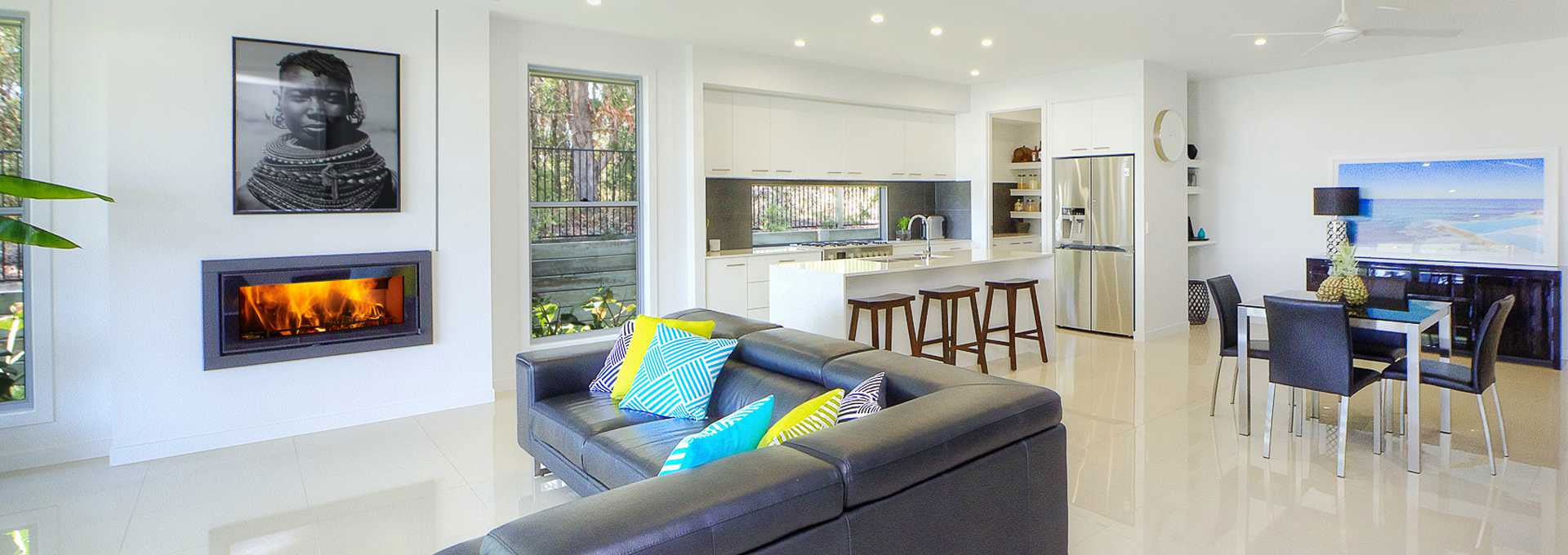
A Fireplace to Suit Every Style
Gone are the days of fireplaces being used simply as a source of warmth. Now, fireplaces are used as a focal point of a room and are used to express an interior designer’s vision. A fireplace can now instantly warm the room with a flick of a switch, add a warm glow and even set the mood. Whether you’re building your dream home, looking to renovate, or browsing through Pinterest for inspiration, you’ll find yourself leaning towards a particular interior design style.
There is a fireplace to suit every style; however, it can be tricky to define exactly what your interior style is and what model would suit that style best. Regency has taken out the guess work and listed the top 7 interior design styles and paired them with a Regency Fireplace.
You can design your own fireplace and look for fireplace design inspiration with the Regency Fireplace Design Center. Upload your photo to see how the fireplace will look in your own house.
1. Modern
Modern typically refers to clean, crisp lines and the use of natural materials that make up the colour pallet. Modern design has a sense of simplicity in every element, including the furniture. Commonly described as sleek, a modern interior style does not involve a lot of clutter or accessories. Bold colours, that are often primary colours, are used as accents to help break up neutrals to provide focal points – for example, the use of abstract wall art.
Furniture
Furniture is kept to a minimum to create a sense of space and cleanness, straight lines with minimal embellishments. The essence of a modern room includes furniture that is smooth, simple, clean, and has easy geometric shapes.
Colour
Modern spaces are filled with warm and natural neutrals. Subdued colours such as white, beiges, light browns and greys are often used in a modern décor. Some bright colours may be present but are either used as base tones or accent elements.
Regency Recommends
For gas – Regency GF900L with clean edge finish
For wood – Regency Montrose with 15mm finishing trim
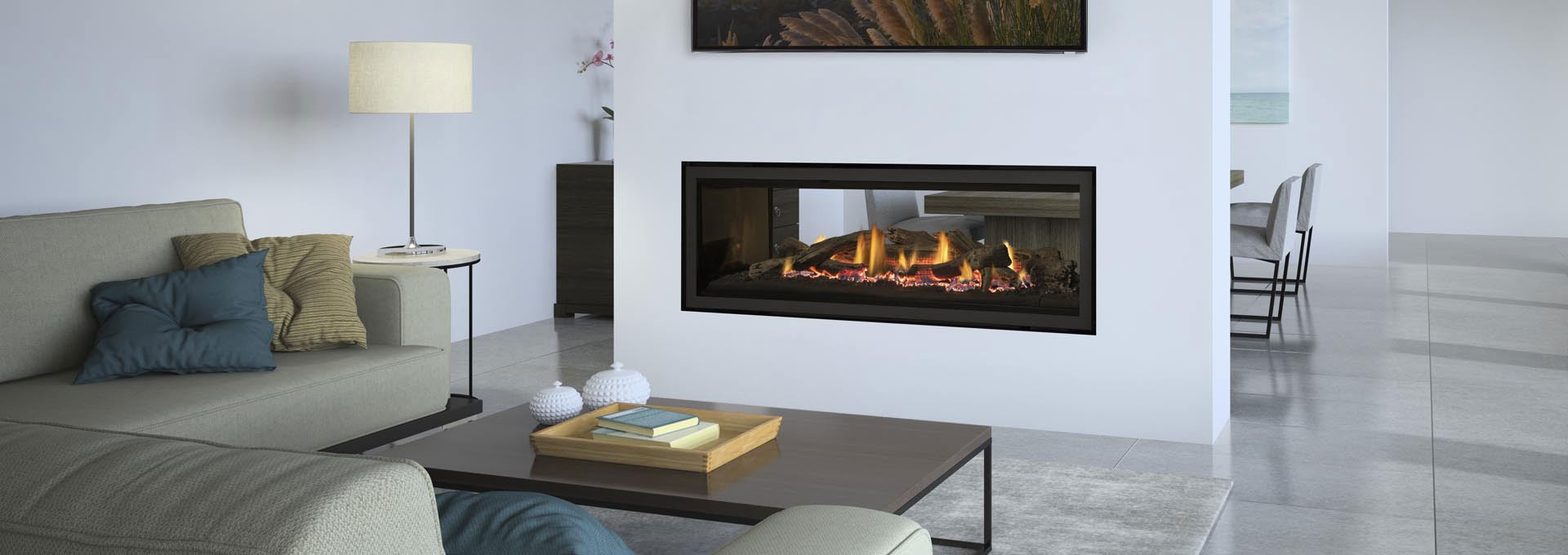
2. Contemporary
People often use the terms contemporary and modern interchangeably when they are actually two different styles. Contemporary differs from modern in that it doesn’t refer to a specific period of time and is constantly evolving. A modern design specifically refers to the design movement that was birthed around the turn of the 20th century. The contemporary design became popular in the 1970s and was a blend of styles before it became a category of its own. It borrows elements from modernism to postmodernism and is always changing.
A contemporary home focuses on the basics of line, shape and form. Overall, the look is always fresh with open spaces and natural light. Sleek features and clean lines are present without any extravagant elements used to define the space.
Furniture
Natural coloured fabrics and wood are used – no ruffles or bold patterns are present, but different textures are often seen in a contemporary styled home. Contemporary pieces may concentrate on the form itself and employ geometric elements. A contemporary style loves curves.
Colour
Typically, a contemporary style aims to provide a stark contrast with the use of mainly blacks and whites – although, changing from one extreme to the other on the colour scale is not a problem. Browns, whites and creams are also used and shades of similar colours are often used to create a sense of depth and variety.
Regency Recommends
For gas – Regency GF1500LST with black fascia
For wood – Stovax Studio 2 with Steel XS fa
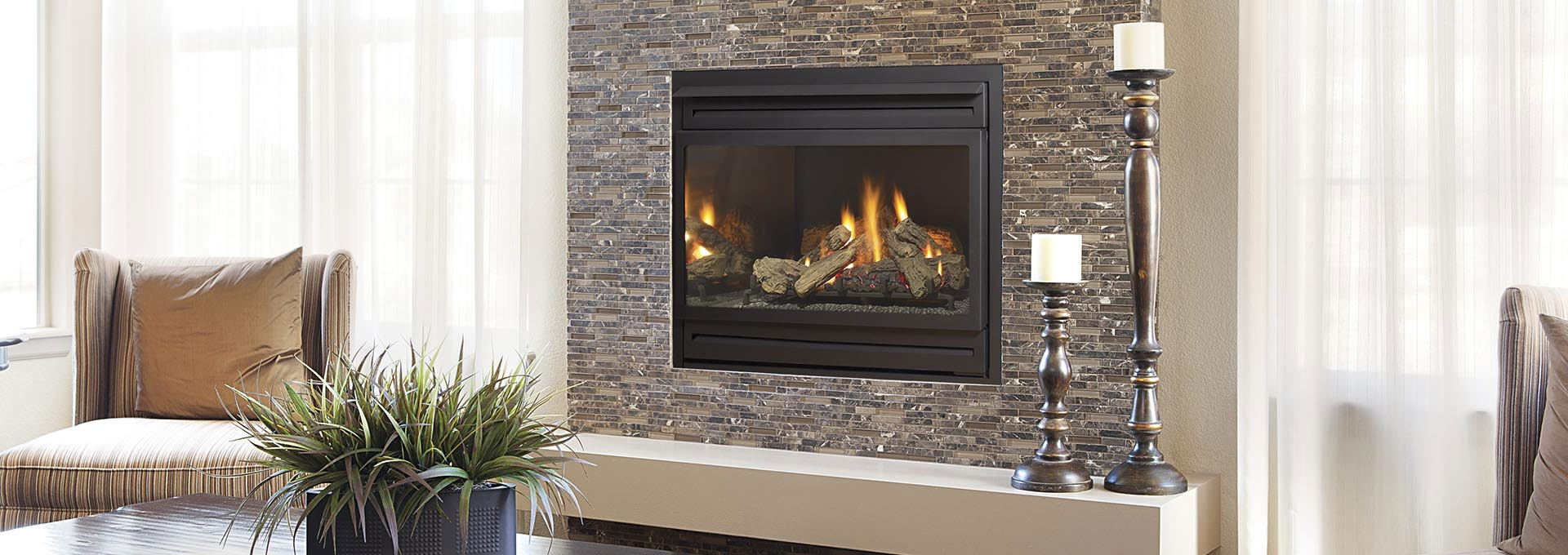
3. Minimalist
The term minimalist was influenced by the simplicity of Japanese design, in which the principle is less is more. This design focuses on essential elements and empty space to make a statement. Minimalism is ultimately defined by a sense of functionality and ultra-clean lines. Although, minimalism showcases functional design, it is not just about a plain white box or cool ultramodern space. A minimalist design can artistically express functionality and a simplified way to live. The hallmark of minimalist interior design is the elimination of clutter and extraneous objects.
Furniture
Items are simple and often serve for multiple functions, only essential pieces are present in rooms with basic shapes and a neat design. Crisp lines and well-placed rectangle shapes can be used to create sense of order. Streamlined furniture gives you more space in even the smallest rooms.
Colour
Colour combinations are kept to a minimum in order to enhance the serene and balanced environment. Colour is used sparingly, using black, white, and primary colours. Colours are solid with no pattern, while white is predominantly used with a few other greys and monochromatic times. Pops of colour and layers of textures work well in any minimalist space.
Regency Recommends
For gas – Regency PG36
For wood – Regency Berwick
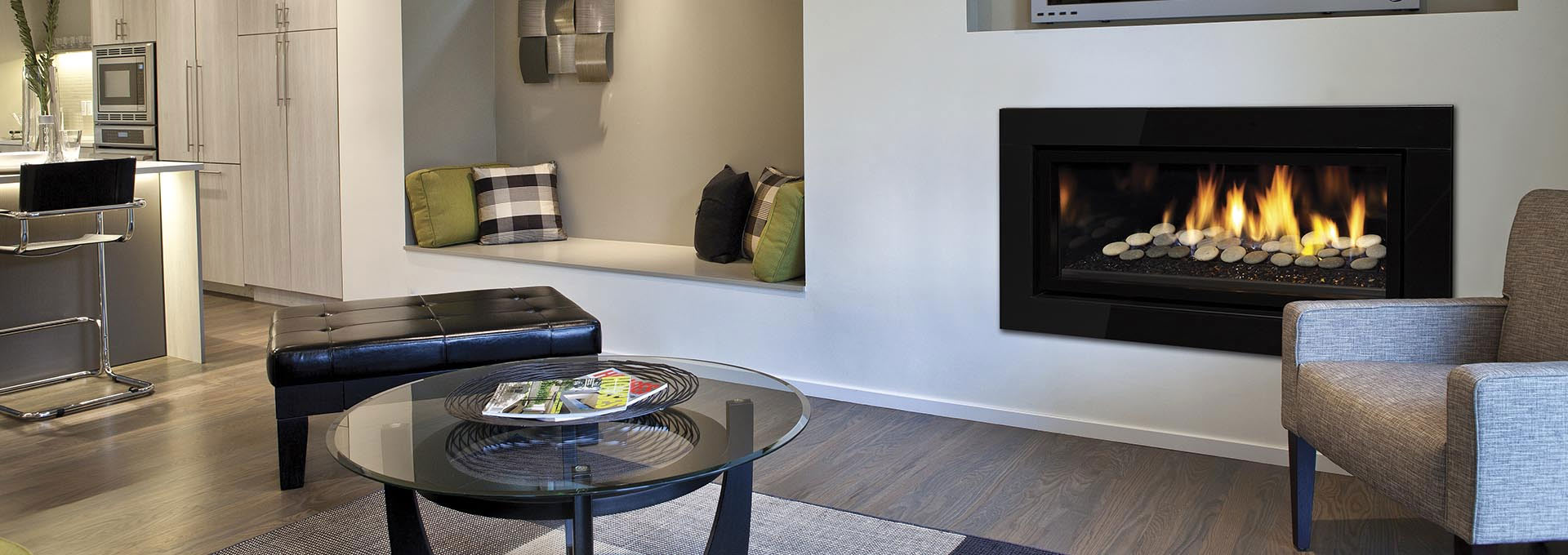
4. Industrial
Industrial design has become increasingly popular in the past few years. This style is based on displaying industrial materials that many try to conceal. Drawing inspiration from a warehouse, an industrial interior style will typically follow an open floor plan with high ceilings, exposed brick on the wall, bare wood or pipes, and rough surfaces, with polished concrete floors to finish off the look. It’s about selection pieces that are about function and style.
Furniture
Consider incorporating a variety of natural materials, like wood and stone, and metal pieces into your design. Industrial spaces are all about missing the old and the new. Juxtapose different types of wood and metal throughout your design.
Colour
The industrial design incorporates the use of a neutral colour palette. Palettes of mostly grey and brown, with white and darker tones of grey, and blue and red are often used. It also incorporates a variety of browns and tans, which can be used as your dominant colours, with other neutrals serving as accents.
Regency Recommends
For gas – Regency GF1500L with stainless steel fascia
For wood – Regency Bellerive

5. Mid-Century Modern
Pulling aspects of style from the 1950s and 1960s, mid-century modern has a retro inspired feel. Functionality and a ‘fuss free’ approach was the main theme of mid-century design, with an emphasis on form and organic shapes. It easily complements any interior and also helps with seamless transition from interior to exterior.
Furniture
Mid-century modern design has minimal ornamentation. The juxtaposition of different materials is used. Traditional materials used are wood, metal, glass, vinyl and plastic. This style uses iconic pieces from this era and vintage furniture can be used to set the tone nicely.
Colour
Vast arrays of different colours are used, from neutral to bold to graphic use of black and white. The mid-century modern look incorporates bold pops of colour. Be careful not to mix multiple loud colours that they did in that era – you run the risk of looking outdated. Instead, focus on setting the tone with one colourful statement piece.
Regency Recommends
For gas – GF900C with clean finish
For wood – Stovax Studio 2 with edge+ kit
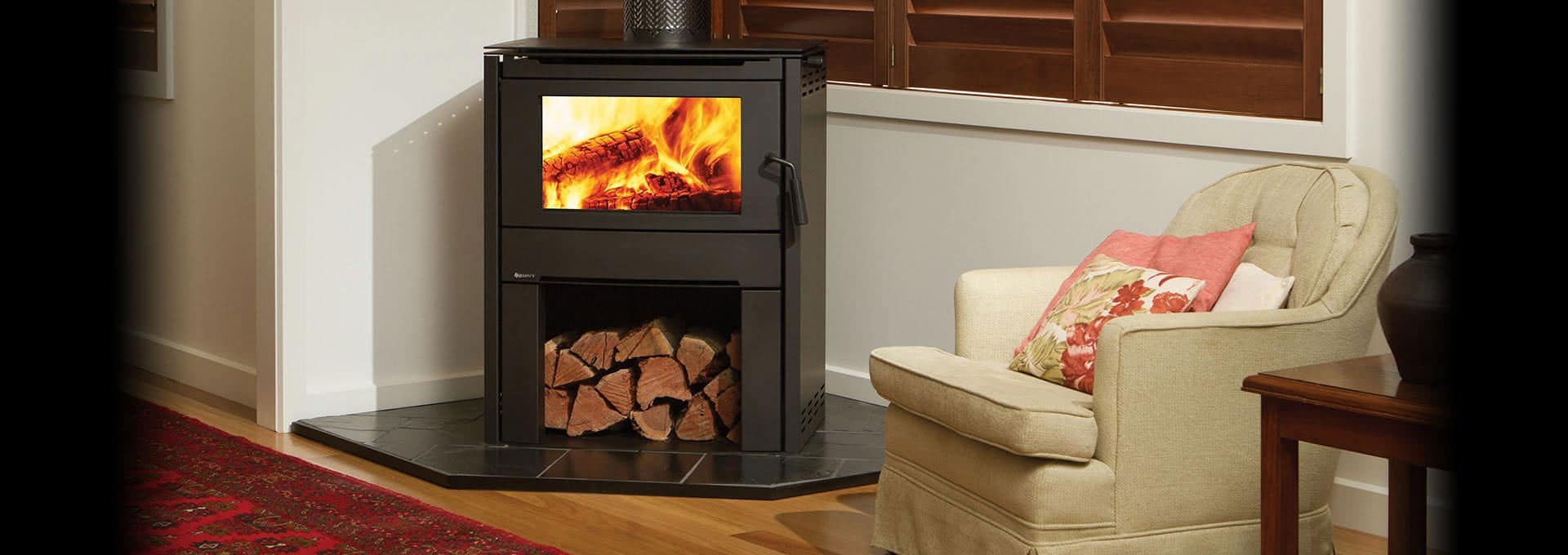
6. Traditional
With its European roots, classic furniture and an abundance of accessories, a Traditional interior style brings a feeling of warmth, comfort, and elegance. Traditional homes often feature dark, finished wood, rich colour palettes, and a variety of textures and curved lines. Order, symmetry, and proportion are principles utilized in the traditional design. This timeless style is perfect for those who love antiques, classic art pieces, symmetry, and design elements that are rich with history.
Furniture
A common feature of traditional furniture is the exposed, decorative legs, which give a special accent. Cozy furniture with curves and soft edges are a staple of traditional décor. Furnishings have elaborate and ornate details and fabrics, like velvet, silk and brocade, which may include a variety of patterns and textures. Furniture is often a dark or medium wood tone expressed in cherry, mahogany, or walnut. Wall mirrors play a large role in enlarging the perception of space. Further accessorize the traditional look with oil paintings, oriental rugs, vases, or figurines.
Colour
A wide range of colours and shades can be utilized in traditional interior design. A neutral palette is typically used with a focus on warm colours, think beige, cream, taupe and tan. If colour is used generally it is dark hues of blue, brown, red or green. Think classic and avoid neon bright or shocking colours.
Regency Recommends
For gas – Regency FG39
For wood – Regency Alterra
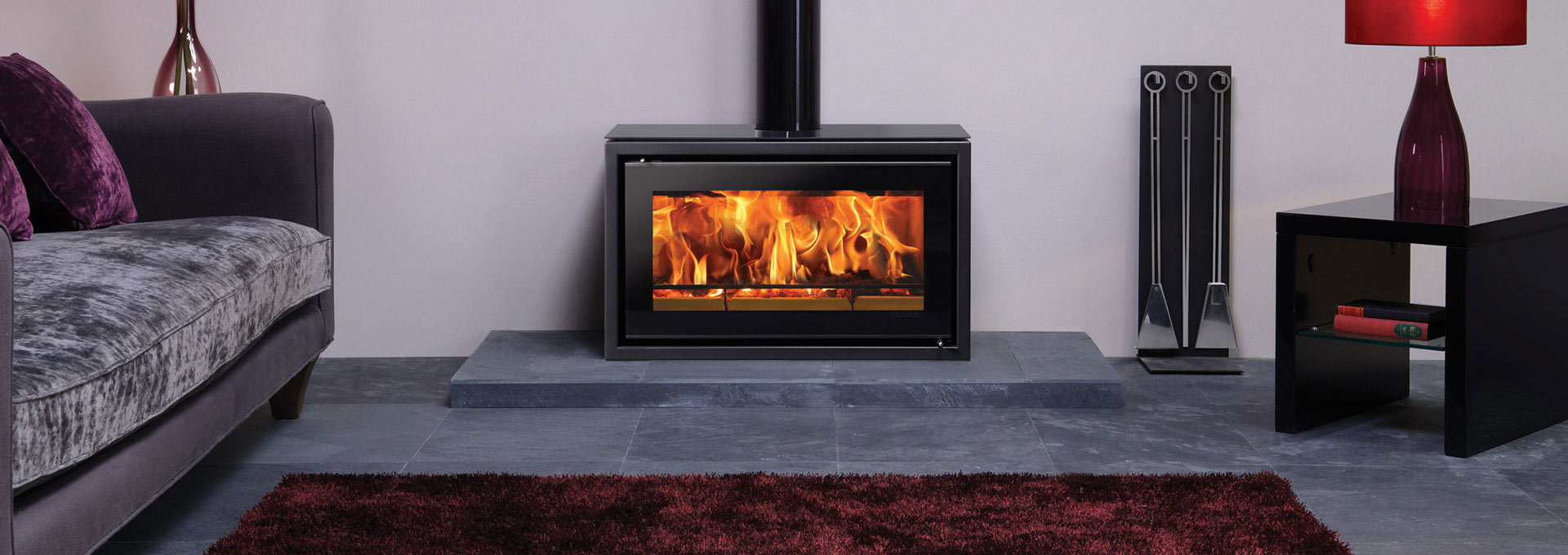
7. Transitional
Transitional design is the art of mixing different styles. It embraces comfort with a modern twist. Borrowing from both traditional and modern design, transitional takes modern materials, such as steel and glass and brings them together with push furnishings. Transitional design also includes relatively neutral colour palettes, creating a calming and relaxed space that manages to feel both stylish and sleek, as well as warm and inviting.
Furniture
Curves meet straight lines here. Traditional sofas and chairs are upholstered in modern fabrics and prints. Accessories are used sparingly in efforts to draw attention to the simplicity and sophistication of the design. This design uses pieces that don’t overwhelm or take over the room. Keep accessories to a minimum to maintain the practicality of the room.
Colour
Use soothing colours. Transitional designs are known for their subtle and clean colour palettes. Warm neutral tones such as grey, taupe and cream are often used. The lack of colour makes room for highlighting contrasts with interesting textures. Prints and patterns are sometimes used very subtly.
Regency Recommends
For gas – GF1500L with black fascia
For wood – Stovax Studio 1 Freestanding
When it comes to interior design, the possibilities are endless and inspiration can come from anywhere. When designing your home, all that you need are some research, a little inspiration, and your own self-expression. You can transform your room into anything you desire.